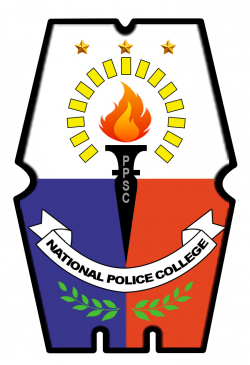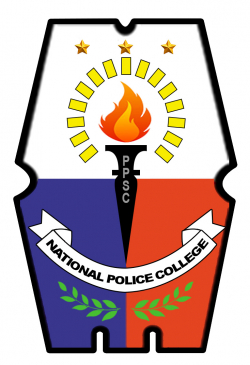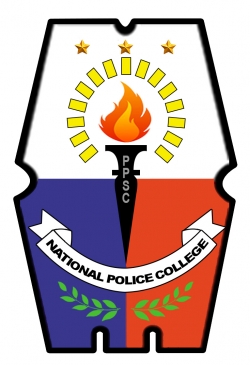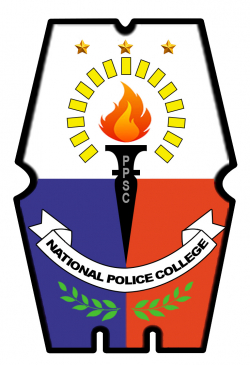THE COMMUNITY RESPONSE TOWARDS PNP LAW ENFORCEMENT OPERATIONS IN CABAGAN, ISABELA.

Type
Thesis
Authors
PCPT ARNEL L ACAIN, PCPT MICHAEL M BARICAUA, PCPT LLEWILYN D GUZMAN, ( PCPT ELMO DG LORENZO, PCPT ALFO )
Category
PSOAC
[ Browse Items ]
Abstract
CASE STUDY
Introduction (Background and Nature of the study)
Enforcement, defined as the process of ensuring compliance with laws. Regulations, rules, standards, and social norms, is deemed important when the law seeks to protect the people. Enforcement is therefore important to Make that the provisions of the law must be implemented, and the government is highly responsible for enforcement through the police who enforce laws, investigate crimes, and make arrests.
The Philippine national police (PNP) the primary law enforcement agency in the Philippines and established under republic agency in the Philippines and established under republic act no. 6975, is empowered to make arrest and investigation and prevention of crime. As such, one of its basic task is to maintain public peace and order aside from preventing and detecting crimes with participation and cooperation of the people in the community. While the concept of participation and cooperation of the barangay people implies a partnership of efforts between the PNP and the community residents, it is but proper to stress the importance of building a smooth police-community relationship, hence, the active support of the community is a vital factor to consider in the pursuit of the PNP’s mission.
The maintenance of peace and order and crime prevention is a shared responsibility of the PNP and the entire community which requires the concentrated and cooperative efforts of both groups, this provides an explanation and a vivid illustration of a saying by Robert peel that runs his ways: police is the community and the community is the police” (Manwong, et al., 2008).
The people in the barangays are the end-users of the PNP programs and should participate actively in crime prevention and other similar activities. This implies that to build and maintain a smooth police-community relationship, efforts must be experted to define and delineate the role of each group in this particular relationship. A police-community relations program emanating from the PNP should be presented for consultation with the barangay officials to ensure its proper implementation with characterized by cooperation and coordination.
Smooth police-community relation can be attained when it resolves around efforts to win the trust, confidence, and support of the people by focusing on the concept of doing good and telling the people about it. A concept that requires two major elements to succeed- communication and community works.
History tells us that the Philippines had its own unique way of community partnership called bayanihan. The bayanihan method illustrate the need for the whole neighborhood to get involves in policing and law enforcement. Hence, the community relies upon the police to serve and protect and the police who in return, rely upon community support and cooperation to be effective.
Past experiences reveal that anti-criminality strategies and concepts were adopted by the PNP in its effort to curb criminality and maintain peace and order, but it was observe that most of the concepts were found to be unsustainable as they were just revised version of crime prevention concept from other countries and were not suitable to the existing criminality situation in the Philippines.
Since the PNP cannot do its mandated tasks alone, the involvement, and support of government institutions agencies and the community are necessary to attain peace , security, and safety, and safety. Hence, there is a need for all stakeholders to be collectively firm in asserting preference, applying solution and laying down the framework of policies for attaining peace and stability as a precursor to progress and development. Empowering our citizens through the BPO and its implementers, the BPATs, promote an environment of mutual trust and confidence while maintaining tranquility and order and providing safety services.
This study centered on the task of assessing the level of awareness and extent of participation of community respondents on law enforcement operation of the PNP. of the many law enforcement operations outlined in the 2010 police operational procedures (POP) are considered as the most common activities conducted by the PNP in the barangays. Another valid reason is to avoid confusion among the respondents and to facilitate the answering of the survey questionnaires.
Introduction (Background and Nature of the study)
Enforcement, defined as the process of ensuring compliance with laws. Regulations, rules, standards, and social norms, is deemed important when the law seeks to protect the people. Enforcement is therefore important to Make that the provisions of the law must be implemented, and the government is highly responsible for enforcement through the police who enforce laws, investigate crimes, and make arrests.
The Philippine national police (PNP) the primary law enforcement agency in the Philippines and established under republic agency in the Philippines and established under republic act no. 6975, is empowered to make arrest and investigation and prevention of crime. As such, one of its basic task is to maintain public peace and order aside from preventing and detecting crimes with participation and cooperation of the people in the community. While the concept of participation and cooperation of the barangay people implies a partnership of efforts between the PNP and the community residents, it is but proper to stress the importance of building a smooth police-community relationship, hence, the active support of the community is a vital factor to consider in the pursuit of the PNP’s mission.
The maintenance of peace and order and crime prevention is a shared responsibility of the PNP and the entire community which requires the concentrated and cooperative efforts of both groups, this provides an explanation and a vivid illustration of a saying by Robert peel that runs his ways: police is the community and the community is the police” (Manwong, et al., 2008).
The people in the barangays are the end-users of the PNP programs and should participate actively in crime prevention and other similar activities. This implies that to build and maintain a smooth police-community relationship, efforts must be experted to define and delineate the role of each group in this particular relationship. A police-community relations program emanating from the PNP should be presented for consultation with the barangay officials to ensure its proper implementation with characterized by cooperation and coordination.
Smooth police-community relation can be attained when it resolves around efforts to win the trust, confidence, and support of the people by focusing on the concept of doing good and telling the people about it. A concept that requires two major elements to succeed- communication and community works.
History tells us that the Philippines had its own unique way of community partnership called bayanihan. The bayanihan method illustrate the need for the whole neighborhood to get involves in policing and law enforcement. Hence, the community relies upon the police to serve and protect and the police who in return, rely upon community support and cooperation to be effective.
Past experiences reveal that anti-criminality strategies and concepts were adopted by the PNP in its effort to curb criminality and maintain peace and order, but it was observe that most of the concepts were found to be unsustainable as they were just revised version of crime prevention concept from other countries and were not suitable to the existing criminality situation in the Philippines.
Since the PNP cannot do its mandated tasks alone, the involvement, and support of government institutions agencies and the community are necessary to attain peace , security, and safety, and safety. Hence, there is a need for all stakeholders to be collectively firm in asserting preference, applying solution and laying down the framework of policies for attaining peace and stability as a precursor to progress and development. Empowering our citizens through the BPO and its implementers, the BPATs, promote an environment of mutual trust and confidence while maintaining tranquility and order and providing safety services.
This study centered on the task of assessing the level of awareness and extent of participation of community respondents on law enforcement operation of the PNP. of the many law enforcement operations outlined in the 2010 police operational procedures (POP) are considered as the most common activities conducted by the PNP in the barangays. Another valid reason is to avoid confusion among the respondents and to facilitate the answering of the survey questionnaires.
Number of Copies
1
| Library | Accession No | Call No | Copy No | Edition | Location | Availability |
|---|---|---|---|---|---|---|
| NPC Library | 676527 | 1 | Yes |




